Discover what farm animals hatch from eggs! From chickens to ducks to turkeys, learn about the fascinating process of egg hatching.
Have you ever wondered what farm animals hatch from eggs? From fluffy yellow chicks to shelled reptiles, the world of egg-laying creatures is a fascinating one. It’s amazing to think that these tiny, fragile eggs can hold the potential for new life. As we delve deeper into the subject, we’ll explore the diversity of animal species that hatch from eggs and discover some interesting facts about each one. So, let’s crack open this topic and see what kind of surprises lie within!
When we think of animals that hatch from eggs, birds are often the first creatures that come to mind. However, there are many farm animals that also begin their life cycle as an egg. From the smallest quail to the largest ostrich, these eggs contain all the nutrients and energy needed for the animal to grow and develop. In this article, we will explore some of the farm animals that hatch from eggs.
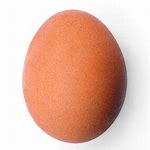 Chickens
Chickens
Chickens are one of the most common farm animals that hatch from eggs. The eggs are laid by female chickens, or hens, and incubated for around 21 days. Once the egg hatches, a baby chick emerges. These chicks are covered in downy feathers and are dependent on their mother for warmth and protection. Over time, they grow feathers and become more independent.
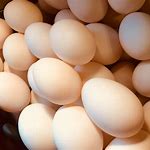 Ducks
Ducks
Ducks are another common farm animal that hatches from eggs. Like chickens, the eggs are incubated for around 28 days before hatching. Baby ducks are called ducklings and are also covered in downy feathers. They are able to swim and find their own food soon after hatching, but still require protection from their mother.
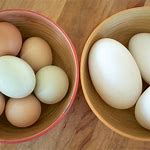 Geese
Geese
Geese are larger birds than chickens or ducks, and their eggs reflect this. Goose eggs are about three times the size of a chicken egg and take around 30 days to hatch. Goslings, or baby geese, are similar to ducklings in that they are able to swim and find their own food soon after hatching. However, they still require protection from their mother for warmth and safety.
 Turkeys
Turkeys
Turkeys are a popular farm animal for meat production, but they also begin their life cycle as an egg. Turkey eggs are larger than chicken eggs and take around 28 days to hatch. Once the poults, or baby turkeys, hatch, they are able to stand and walk within a few hours. However, they still require warmth and protection from their mother for the first few weeks of life.
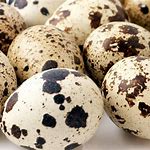 Quails
Quails
Quails are smaller birds than chickens, ducks, geese, or turkeys, but they also lay eggs that can be used for food production. Quail eggs are about the size of a large grape and take around 18 days to hatch. Once the quail chicks hatch, they are able to move around and find their own food soon after. However, they still require warmth and protection from their mother for the first few weeks of life.
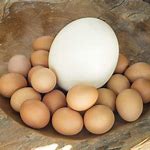 Ostriches
Ostriches
Ostriches are the largest birds in the world, and their eggs are also the largest of any bird. Ostrich eggs are about 6 inches long and weigh around 3 pounds. They take around 42 days to hatch, and the baby ostriches, or chicks, are able to stand and run within hours of hatching. However, they are still dependent on their mother for warmth and protection for the first few weeks of life.
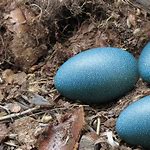 Emus
Emus
Emus are another large bird that lays eggs for food production. Emu eggs are slightly smaller than ostrich eggs but are still quite large at around 5 inches long and weighing around 2 pounds. They take around 50 days to hatch, and the baby emus, or chicks, are able to stand and run within a day of hatching. However, they still require warmth and protection from their mother for the first few weeks of life.
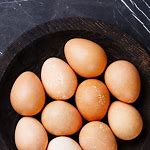 Guinea Fowl
Guinea Fowl
Guinea fowl are smaller birds that are often kept on farms for pest control. However, their eggs can also be used for food production. Guinea fowl eggs are about the size of a small chicken egg and take around 28 days to hatch. The baby guineas, or keets, are able to move around and find their own food soon after hatching. However, they still require warmth and protection from their mother for the first few weeks of life.
 Pheasants
Pheasants
Pheasants are often raised on farms for hunting purposes, but their eggs can also be used for food production. Pheasant eggs are about the size of a quail egg and take around 23 days to hatch. Once the pheasant chicks hatch, they are able to move around and find their own food soon after. However, they still require warmth and protection from their mother for the first few weeks of life.
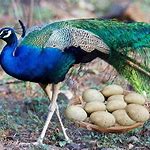 Peafowl
Peafowl
Peafowl, which include both peacocks and peahens, are often kept on farms for their beauty as well as their eggs and meat. Peafowl eggs are about the size of a chicken egg and take around 28 days to hatch. Once the peafowl chicks hatch, they are able to move around and find their own food soon after. However, they still require warmth and protection from their mother for the first few weeks of life.
As you can see, there are many farm animals that hatch from eggs. Whether you’re raising birds for meat production or simply keeping them as pets, understanding the life cycle of these animals is important. By providing warmth, protection, and proper nutrition, you can help these baby animals grow into healthy adults.
Farm animals are fascinating creatures that have been a part of human civilization for thousands of years. One unique aspect of many farm animals is that they hatch from eggs. The popular egg-hatching farm animals include chickens, ducks, geese, turkeys, and quails. These birds have been domesticated for their meat, eggs, and feathers. However, not all farm animals that hatch from eggs are birds. Some reptiles, such as snakes and lizards, also lay eggs.
Where do hatched farm animals go? Depending on the purpose of the farm, hatched farm animals may be raised for various reasons. For instance, chickens are often raised for their eggs or meat, while ducks and geese are commonly raised for their meat and down feathers. Turkeys are usually raised for their meat during the holiday season. Quails, on the other hand, are often raised for their eggs and meat in Asian cuisine. In addition, some farmers may choose to sell their hatched farm animals as pets or breeding stock.
Different types of eggs are laid by farm animals. Chicken eggs are the most popular and commonly consumed eggs in the world. They are laid by hens and come in a variety of colors, including white, brown, and blue-green. Duck eggs are larger than chicken eggs and have a richer flavor. They are often used in baking and are a delicacy in some cultures. Goose eggs are even larger than duck eggs and have a more robust yolk. They are also used in baking and cooking. Turkey eggs are similar in size to duck eggs but have a milder flavor. Quail eggs are the smallest of the common farm animal eggs and have a delicate flavor.
How long does it take for farm animal eggs to hatch? The incubation period varies depending on the type of farm animal. Chicken eggs take about 21 days to hatch, while duck eggs take 28 days. Goose eggs take 28-34 days, and turkey eggs take 28 days. Quail eggs hatch in just 16-18 days. During the incubation period, the fertilized eggs must be kept at a constant temperature and humidity level to ensure successful hatching.
The significance of egg candling in hatching is crucial to the success rate. Egg candling is the process of shining a bright light through the egg to detect any abnormalities or signs of development. This enables farmers to remove any unfertilized or damaged eggs from the incubator, reducing the risk of contamination and allowing the healthy eggs to receive adequate nutrients throughout the incubation period.
Factors affecting hatch rates of farm animal eggs include temperature, humidity, ventilation, egg turning, and sanitation. If these factors are not properly maintained, the eggs may not hatch, or the hatch rate may be reduced, resulting in weak and fragile chicks. Thus, farmers must pay close attention to these factors to ensure optimal hatch rates.
The miracle of life: observing chickens hatch from eggs is a remarkable experience. It is fascinating to see how the embryo grows and develops inside the egg, and how it eventually breaks through the shell to enter the world. The first few moments of a chick’s life are critical, and farmers must provide adequate warmth, food, and water to promote healthy growth and development.
What happens to male chicks on egg-laying farms? Male chicks are often considered an unwanted byproduct of the egg industry as they do not lay eggs and are not suitable for meat production. As a result, they are disposed of in various ways, including being gassed, ground up alive, or sold to the pet food industry. However, some hatcheries have begun to adopt more humane methods of dealing with male chicks, such as raising them for meat or using them for research purposes.
The benefits of incubating farm animal eggs are numerous. By incubating their own eggs, farmers can raise their own chicks, reducing their reliance on purchasing chicks from other sources. This can also result in cost savings and better quality chicks. In addition, incubating eggs allows farmers to select the best breeding stock, resulting in stronger and healthier flocks.
Farm animal hatcheries: the business of hatching eggs has become a significant industry worldwide. Hatcheries provide a crucial service to farmers by hatching and selling high-quality chicks. They use advanced technology and equipment to ensure optimal hatch rates and produce healthy chicks. However, concerns have been raised about the welfare of the hatched chicks, particularly in large-scale commercial hatcheries. As a result, some hatcheries have begun to implement more ethical practices, such as providing humane treatment and reducing the use of antibiotics.
In conclusion, farm animals that hatch from eggs are an essential part of agriculture and human society. They provide us with food, clothing, and companionship. The process of hatching eggs is a remarkable and fascinating one that requires careful attention and management. Farmers must pay close attention to factors such as temperature, humidity, and sanitation to ensure optimal hatch rates and healthy chicks. By doing so, they can contribute to the sustainability and welfare of their flocks and the environment.
Once upon a time, in a big farm, there were many eggs waiting to hatch. The farmer and his family were eagerly waiting for the eggs to hatch as they knew that some of the most adorable and useful farm animals were about to be born. Here are the farm animals that hatch from eggs:
- Chickens: These are the most common farm animals that hatch from eggs. They are known for their beautiful feathers and delicious meat. Chickens are also famous for laying eggs, which are used for various purposes like cooking and baking.
- Ducks: Ducks are also popular farm animals that hatch from eggs. They have webbed feet, which make them excellent swimmers. Ducks are known for their delicious meat and eggs, which are larger than chicken eggs.
- Geese: Geese are larger birds that are also raised on farms. They are known for their loud honking and protective nature. Geese are raised for their meat, feathers, and eggs, which are larger than duck eggs.
- Turkeys: Turkeys are native to North America and are raised for their delicious meat. They have a unique appearance with a wattle under their chin and a fleshy snood on their head.
- Quails: Quails are small birds that are raised for their meat and eggs. They are known for their delicate flavor and are often used in gourmet dishes.
From the farmer’s point of view, these farm animals that hatch from eggs are essential to their livelihood. They provide food, feathers, and other materials that are used for various purposes. However, the farmer also has a responsibility to take care of these animals and ensure that they are healthy and happy.
From the animal’s point of view, life starts in an egg, and they are born with a strong instinct to survive. They need warmth, food, and protection from predators to grow into healthy adults. As they grow, they become part of the farm’s ecosystem and help to maintain a balance in nature.
In conclusion, farm animals that hatch from eggs are an essential part of any farm. They provide food, materials, and companionship to farmers and their families while also contributing to the ecosystem. From both the farmer’s and animal’s point of view, it is crucial to take care of these animals and treat them with respect and kindness.
Well, folks, we hope you have enjoyed our little journey into the world of farm animals that hatch from eggs. From cuddly chicks to majestic ostriches, these creatures have captured our hearts and imaginations for centuries.
As we wrap up this blog post, we encourage you to continue learning about the fascinating world of agriculture and the many creatures that call farms their home. Whether you live in the city or the country, there is always something new and exciting to discover about the animals that provide us with food, clothing, and other essential products.
So, whether you’re a seasoned farmer or simply a curious animal lover, we invite you to explore the amazing world of farm animals that hatch from eggs. Who knows what kind of adventures await you as you embark on this exciting journey? So go ahead, grab your boots and your hat, and get ready to experience the wonders of the farm firsthand!
.
As curious human beings, we tend to ask a lot of questions about the world around us. When it comes to farm animals, many people wonder about what creatures hatch from eggs. So, what are the answers to some of the most common people also ask queries on this topic? Let’s take a look:
- What farm animals lay eggs?
- Chickens
- Ducks
- Geese
- Turkeys
- Quails
- Guinea fowl
- What farm animals hatch from eggs?
- Chickens
- Ducks
- Geese
- Turkeys
- Quails
- Pheasants
- Peafowl
- Emus
- Ostriches
- How long does it take for farm animal eggs to hatch?
- Chicken eggs: 21 days
- Duck eggs: 28 days
- Goose eggs: 28-35 days
- Turkey eggs: 28 days
- Quail eggs: 16-18 days
- Can you hatch farm animal eggs at home?
There are several types of farm animals that lay eggs, including:
Here are some of the most common farm animals that hatch from eggs:
The amount of time it takes for an egg to hatch depends on the type of animal. Here are some average incubation periods:
Yes, it is possible to hatch farm animal eggs at home using an incubator. However, it requires careful temperature and humidity control, as well as regular turning of the eggs.
So there you have it – some answers to the most common questions about what farm animals hatch from eggs. Whether you’re a farmer or simply curious about the natural world, these facts can help you learn more about the creatures that share our planet.






